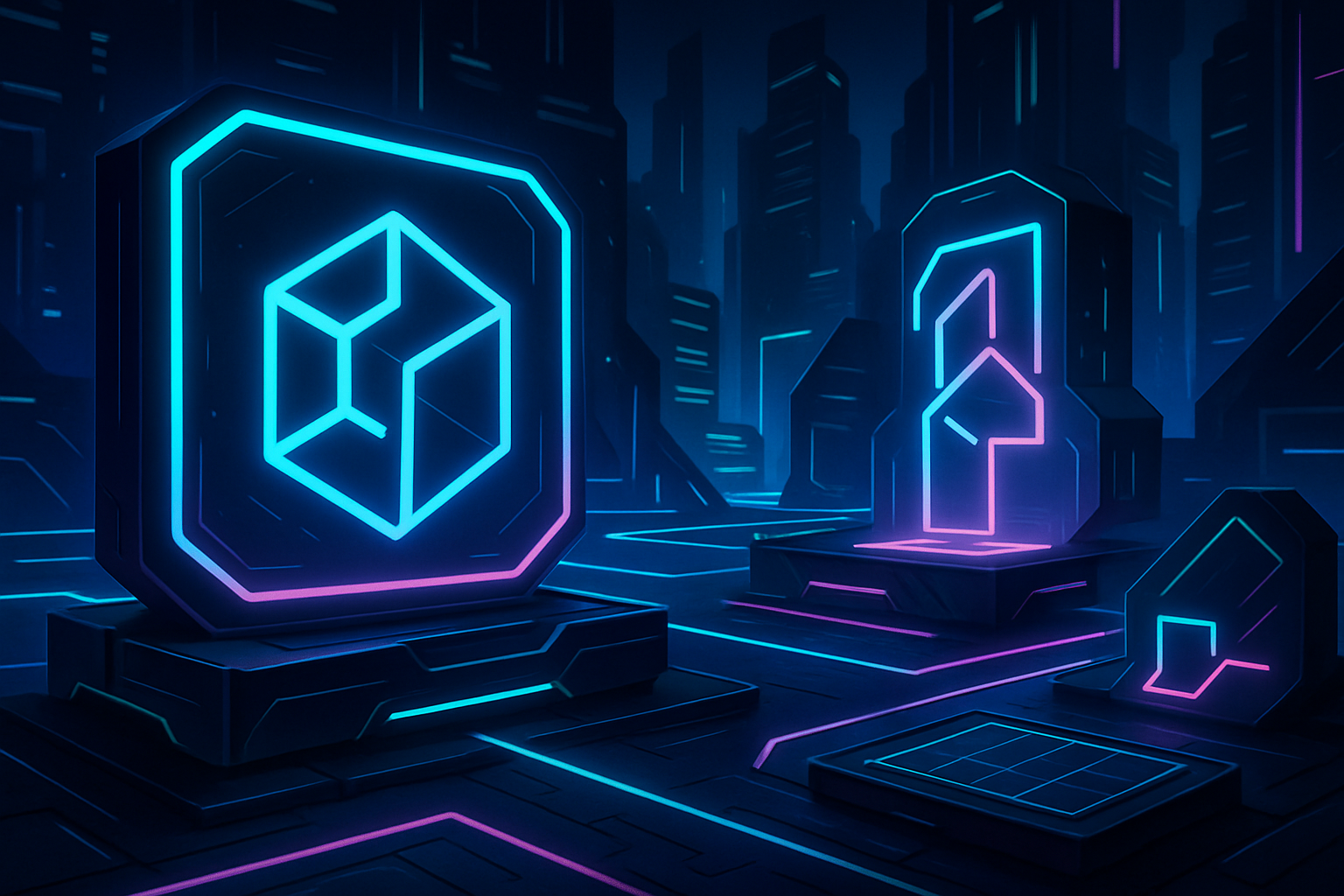
Imagine a world where every click, combo, or spell cast in your favorite blockchain game settles instantly on-chain, and you never worry about gas fees draining your wallet. That’s not a distant dream; it’s the new reality powered by ephemeral rollups, a breakthrough that’s flipping the script on what’s possible for on-chain gaming and real-time decentralized apps.

What Makes Ephemeral Rollups Different?
Traditional blockchains, even the fastest L1s and rollup solutions, have always wrestled with a three-way tradeoff: speed, cost, and composability. For high-frequency games, think PvP shooters, trading card battles, or real-time auctions, even a few hundred milliseconds of latency can spoil the fun. And let’s not even start on microtransactions: paying $0.10 or more per move is an instant game-over for most players.
Ephemeral rollups (ERs) change all of that. Instead of running every single action through the main chain’s consensus engine (which is slow and expensive), ERs spin up temporary blockchains: dedicated execution environments that process transactions off the main chain for just a few seconds or minutes.
Here’s how it works:
How Ephemeral Rollups Power Instant, Zero-Fee Blockchain Gaming
-
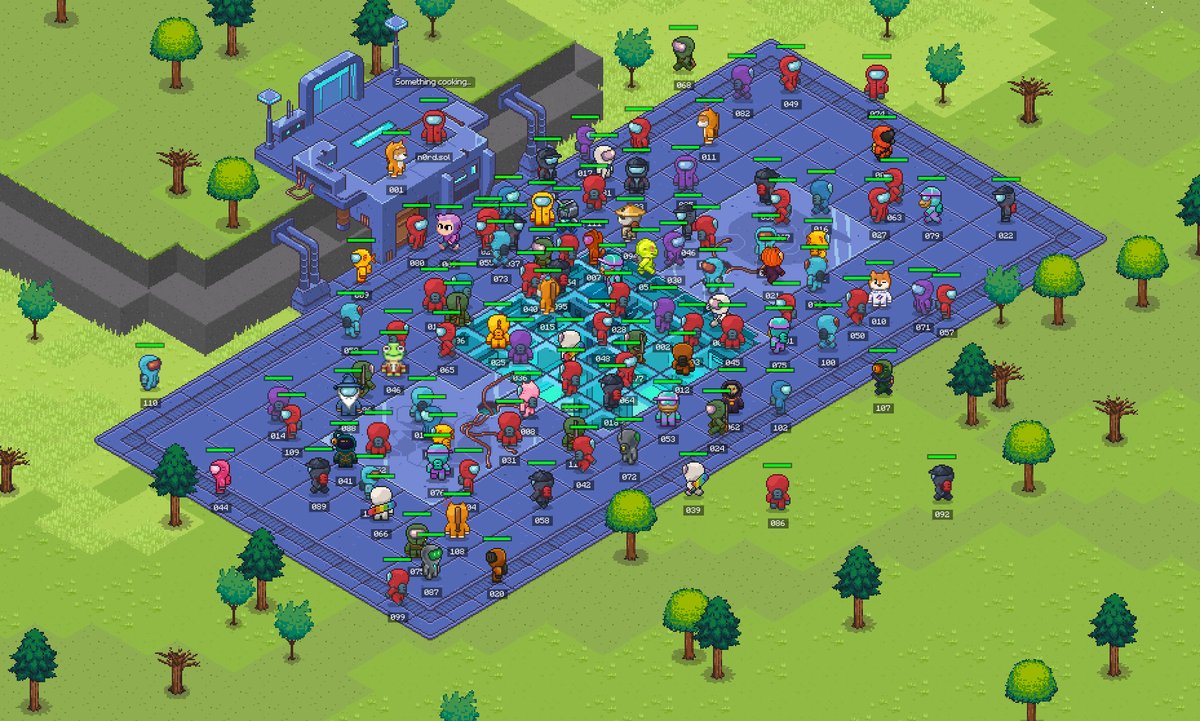
Game action triggers an ephemeral rollup session. When a player takes an action, the game spins up a temporary, dedicated execution environment—an ephemeral rollup—directly on Solana, isolating the game state for ultra-fast processing.
-
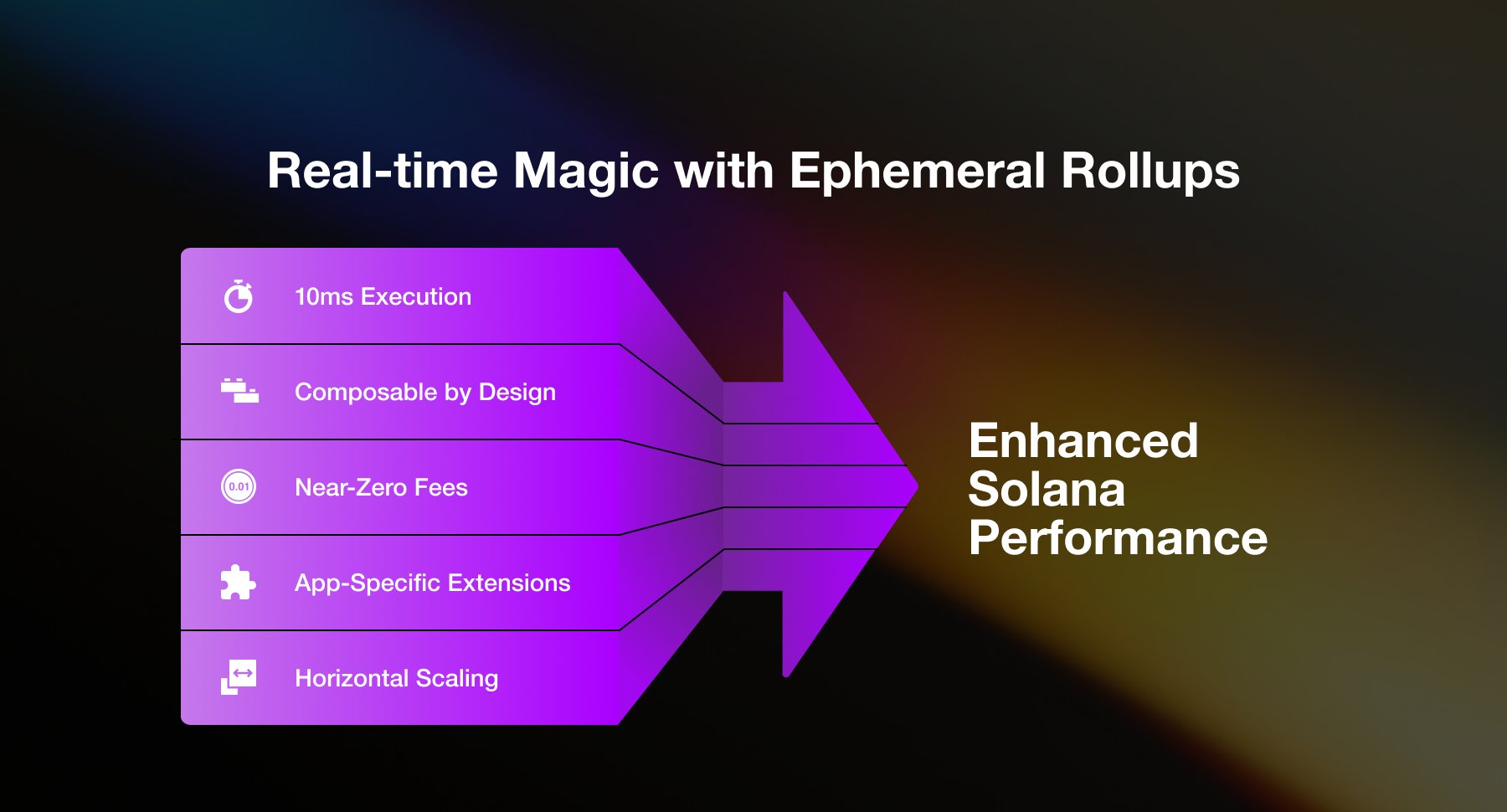
Accounts are locked for secure, real-time updates. The relevant player and game accounts are locked on the main chain (readable but not writable), ensuring no conflicting changes while the game logic runs in the ephemeral rollup.
-
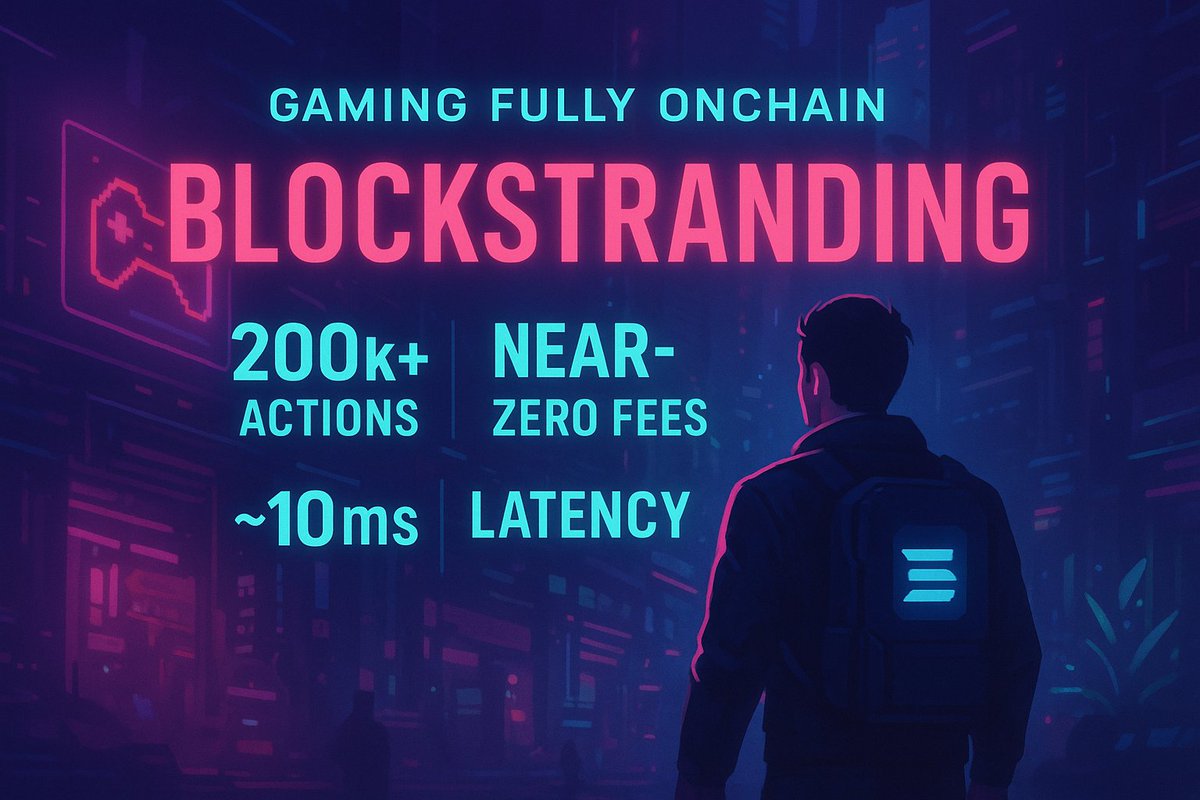
Transactions are processed instantly with zero fees. Player moves and game logic are executed in bursts with block times as low as 1-3 milliseconds, and no gas fees are charged, thanks to MagicBlock’s technology.
-
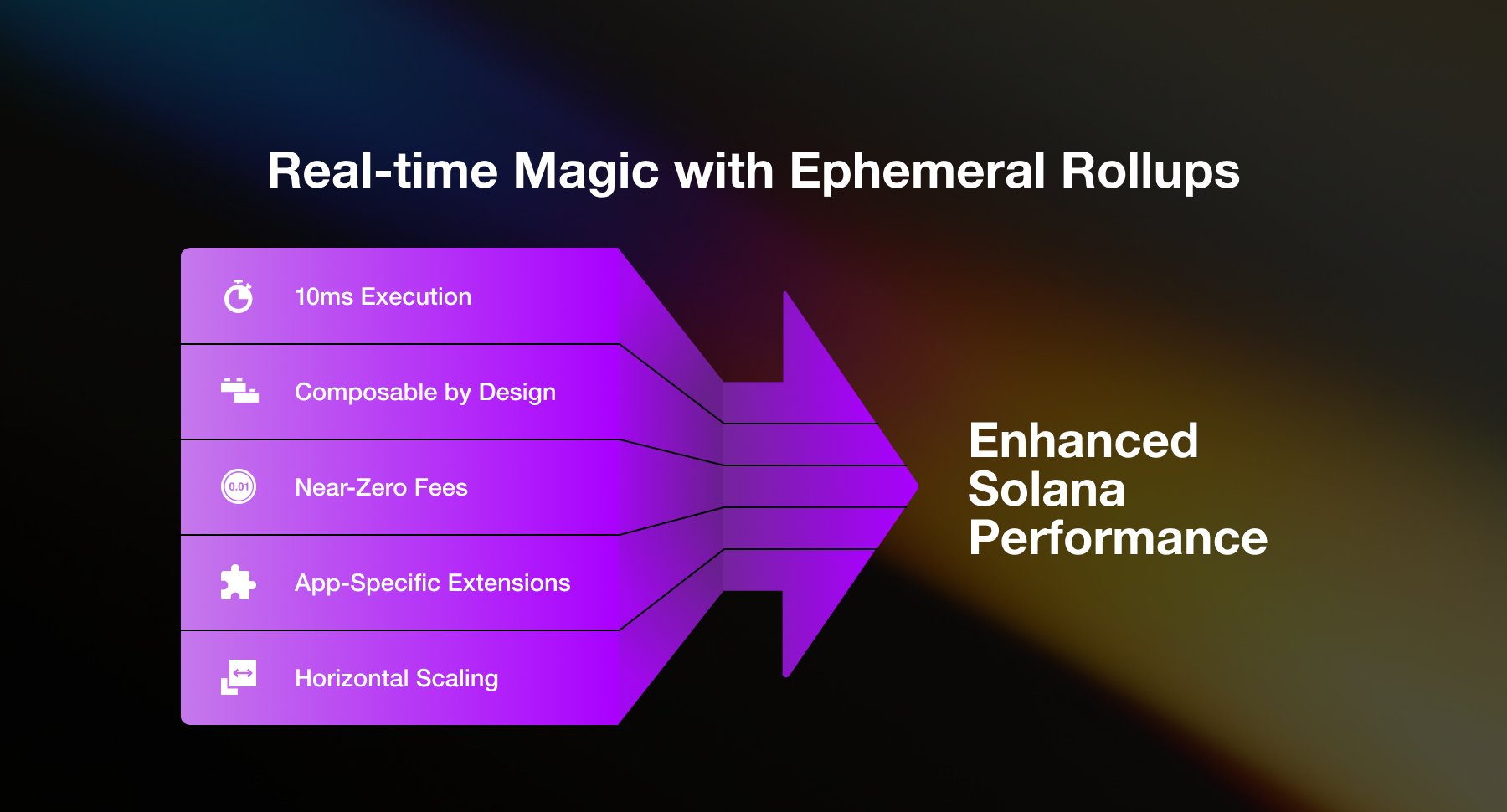
Game state is updated and committed back to the main chain. Once the rollup session ends, all changes are securely written back to Solana, preserving composability and data integrity for the next round of gameplay.
-
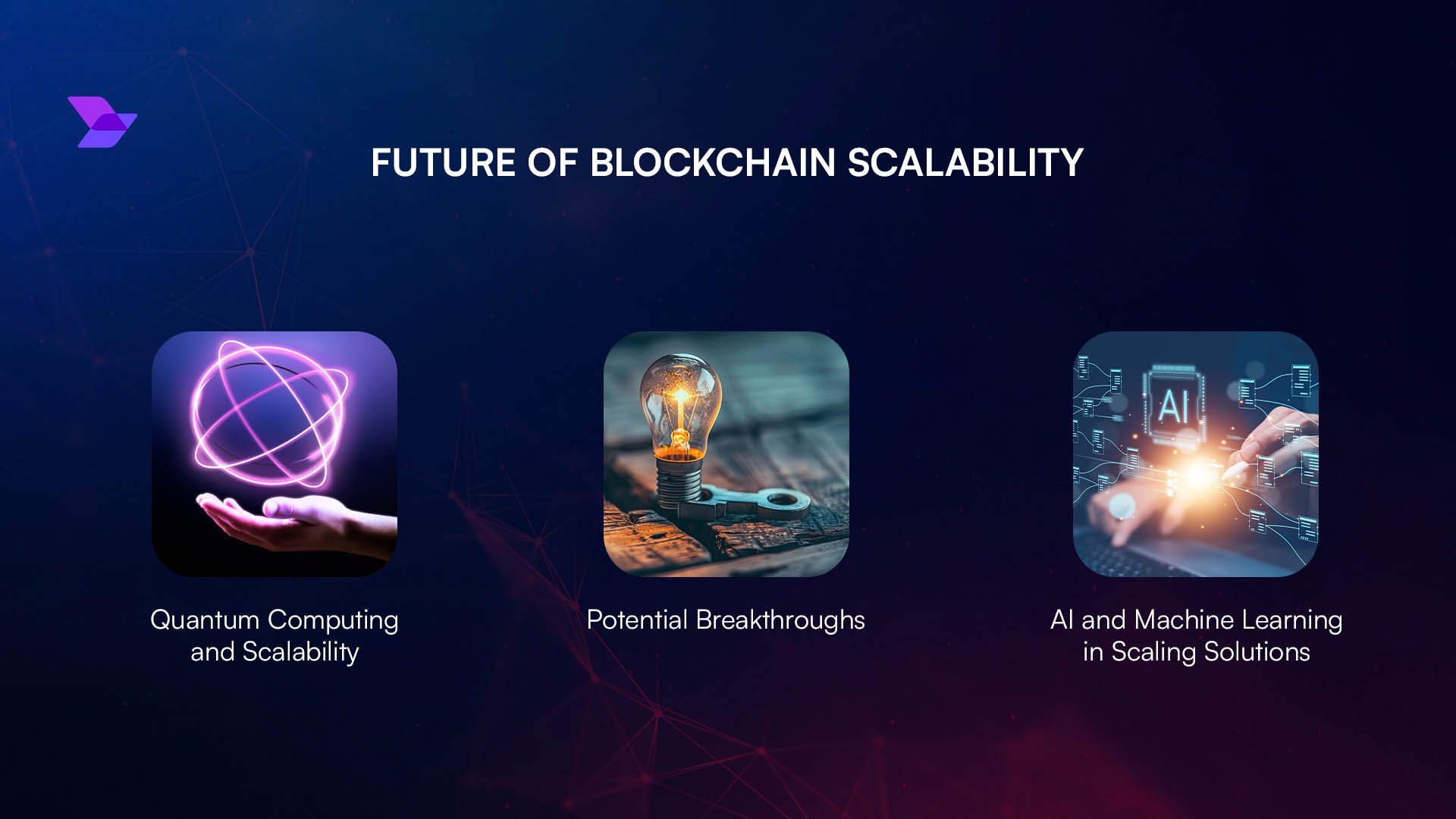
Players enjoy seamless, scalable, on-chain experiences. This process repeats for every player action, enabling high-frequency, real-time gaming that can scale to millions of transactions per second—without congestion or unpredictable costs.
This clever architecture means that while your game session is blazing fast and free of fees, the final state still lands securely back on the parent chain (like Solana). No bridges. No trust assumptions. Just pure speed and composability.
The Tech Behind Zero-Fee Instant Games
The magic behind these ephemeral blockchains isn’t just speed, it’s also about cost predictability and developer freedom. By compressing execution into short-lived bursts (sometimes as quick as 1-3 milliseconds per block), platforms like MagicBlock have slashed transaction costs by up to 95%. In practice, this means most in-game actions are so cheap to process they’re effectively zero-fee.
This isn’t theoretical. Games like Supersize and Windfall are already running fully on-chain with sub-10ms block times using MagicBlock’s stack. Each player move triggers an instant transaction without any visible delay or wallet pop-up, all thanks to ephemeral rollup sessions tailored for gaming workloads.
The Benefits: Why Game Studios Are Flocking to Ephemeral Rollups
- No Gas Fees: Developers can finally offer true zero-fee gameplay experiences without subsidizing user transactions out-of-pocket.
- Ultra-Low Latency: With block times as low as 1-3ms, gameplay feels snappy enough for esports-grade competition.
- Massive Scale: Horizontal scaling lets games handle millions of moves per second during peak events or tournaments.
- Mainchain Security and Composability: All critical state updates are anchored back to chains like Solana for full interoperability with DeFi, NFTs, and more.
- Simplified Dev Experience: Frameworks like Bolt (built atop Anchor) abstract away blockchain headaches so studios can focus on gameplay innovation rather than protocol quirks.
A New Era for Scalable Game Infrastructure
This isn’t just hype, it’s already reshaping how studios approach scalable game infrastructure. Instead of building around blockchain limitations, developers can now design games that feel as smooth as their Web2 counterparts but with all the transparency and ownership benefits of crypto-native tech. The days of clunky wallet prompts or unpredictable fee spikes are numbered.
What’s more, ephemeral rollups open doors for entirely new genres and mechanics. Imagine on-chain games with real-time physics, internal clocks, or collaborative world-building that previously seemed impossible without sacrificing decentralization or composability. Thanks to ERs, these features can run inside dedicated, zero-fee environments, then seamlessly sync back to the main chain when the session ends. This is a game-changer for developers who crave both creative freedom and technical reliability.
For players, the impact is immediate and tangible: actions resolve instantly, there’s no need to worry about topping up wallets or getting hit by surprise gas spikes, and the underlying infrastructure stays invisible. The result? Games that feel as fluid as Fortnite or Hearthstone but are fully on-chain, with assets and outcomes secured by public ledgers.
Ecosystem Momentum and What Comes Next
The momentum behind ephemeral rollup tech is building fast. MagicBlock’s recent $7.5 million seed round (bringing their total funding to $10.5 million) signals serious conviction from investors, and partnerships with projects like Flash Trade, Pyth, Supersize, Jito, and dTelecom show just how wide the use cases are spreading. From high-frequency trading to social dApps and collaborative art platforms, anywhere instant state changes matter is ripe for disruption.
On the developer side, tools like MagicBlock’s Bolt framework are making it easier than ever to tap into this new paradigm. By abstracting away blockchain quirks (like account locking or state reconciliation), Bolt lets studios focus on what matters: crafting compelling gameplay loops and player experiences. That means less time wrangling mempools or debugging gas logic, and more time building worlds where every action counts.
Pro tip: If you’re a studio eyeing instant blockchain games or a founder obsessed with scalable game infrastructure, now’s the time to explore how custom rollups for gaming can give you an edge.
The Future of On-Chain Gaming Is Ephemeral
The writing is on the wall: ephemeral rollups aren’t just a technical upgrade, they’re a catalyst for mainstream-ready blockchain games that don’t compromise on speed or cost. As more studios adopt ER-powered architectures and push the boundaries of what’s possible in zero-fee blockchains, expect a wave of innovation that brings millions of gamers on-chain without them even noticing.
If you want to dive deeper into how temporary blockchains are powering this revolution, and see live examples from pioneers in the space, check out our full guide at CustomAppChains. com.






